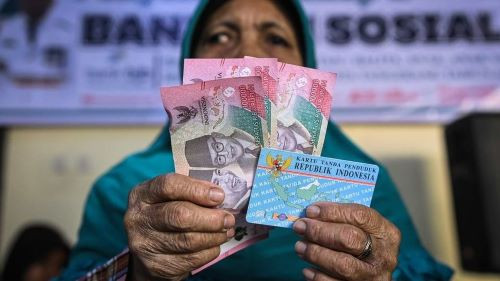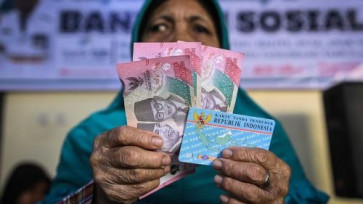Popular Reads
Top Results
Can't find what you're looking for?
View all search resultsPopular Reads
Top Results
Can't find what you're looking for?
View all search resultsUnderstanding the economic thoughts of Sumitro, Prabowo’s father
Bohm’s “shrinking perspective” and Fisher’s “impatience” theories that lower-income people tend to sacrifice their future for the sake of today’s material rewards, remain valid in the Indonesian context.
Change text size
Gift Premium Articles
to Anyone
I
n 1992, I had an opportunity to interview Miral Manan in Padang, West Sumatra. He was the last chairman of the Indonesian Socialist Party (PSI) in the then-Central Sumatra province, which consisted of West Sumatra, Bengkulu, Jambi and Riau.
Miral succeeded Sumitro Djojohadikusumo, the late father of president-elect Prabowo Subianto. “During the upheaval era,” Miral told me, “Sumitro escaped abroad from here.” What he meant by the “upheaval” was the movement of the Revolutionary Government of the Republic of Indonesia (PRRI), which was a regional rebellious movement against Jakarta under first president Sukarno’s leadership in the late 1950s.
If we read Jejak Perlawanan Begawan Pejuang Sumitro Djojohadikusumo (2000), written by Aristides Katoppo, et al, we will find this was a continuation of the young Sumitro’s adventurous career. Sailing in the mid-1930s, Sumitro did not go directly to Rotterdam, the Netherlands, where he would study economics, but “stranded” himself in Barcelona, Spain, for two months just to learn Flamenco dancing and watch bullfights.
After obtaining his bachelor of arts in economics at the age of 20, Sumitro went to Paris, to study philosophy and history at Sorbonne University. At this university, he got a fresh “intellectual-based ideological spirit”, which was absent from his Rotterdam experience.
This spirit encouraged him to apply for membership of the International Brigade in the Spanish Civil War, although he was rejected for being too young. Sumitro managed to build good relations with Pandit Jawaharlal Nehru, who later became the Indian leader in 1938, and several well-known French thinkers such as Andre Malraux, Henri Bergson and Hendrie Cartier Bresson. With the latter, Sumitro was involved in political action, including raising funds for the Spanish Republicans.
It was this golden experience that, I believe, led Sumitro to adhere to “subjective economics”, namely the willingness of an economist to harmonize relations with history. I coined this phrase after being inspired by Geoffrey M Hodgson’s How Economics Forgot History (2001). In this work, Hodgson emphasizes how modern economics has tended to isolate itself from the historical environment where it was born.
As a consequence, following Dimitris Milonaskis and Ben Fine’s From Political Economics to Economics (2009), this tends to create the desocialization and dehistoricization of economics, where it starts to regard itself as a pure science, what once was called by Alfred Marshall in the late 19th century, “a perfectly pure or abstract theory”.


















